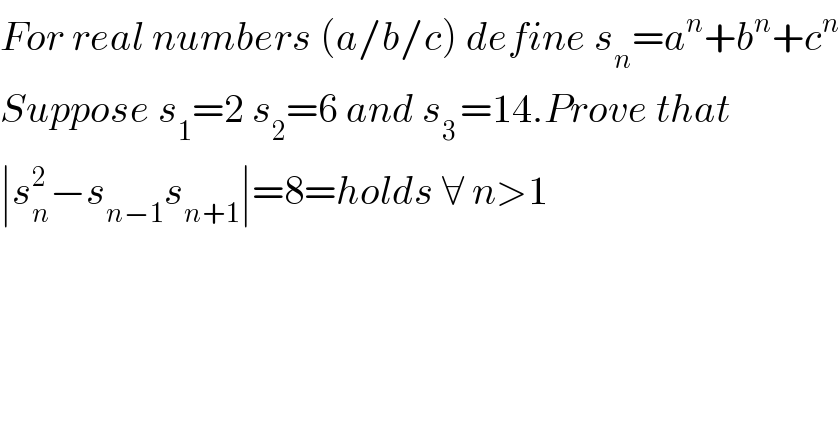
Question and Answers Forum
Question Number 123595 by Snail last updated on 26/Nov/20

Commented bySnail last updated on 26/Nov/20

| ||
Question and Answers Forum | ||
Question Number 123595 by Snail last updated on 26/Nov/20 | ||
 | ||
Commented bySnail last updated on 26/Nov/20 | ||
 | ||